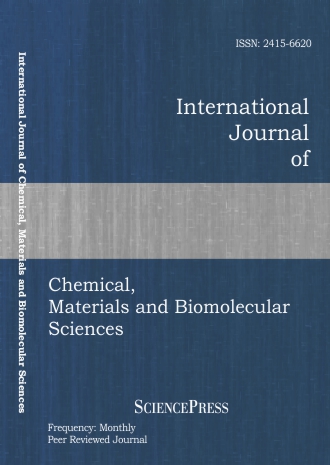
Scholarly
Volume:9, Issue: 12, 2015 Page No: 1444 - 1447
International Journal of Chemical, Materials and Biomolecular Sciences
ISSN: 2415-6620
1213 Downloads
Determination of the Zinc Oxide and Boric Acid Optimum Molar Ratio on the Ultrasonic Synthesis of Zinc Borates
Zinc borates are used as a multi-functional flame retardant additive for its high dehydration temperature. In this study, the method of ultrasonic mixing was used in the synthesis of zinc borates. The reactants of zinc oxide (ZnO) and boric acid (H3BO3) were used at the constant reaction parameters of 90°C reaction temperature and 55 min of reaction time. Several molar ratios of ZnO:H3BO3 (1:1, 1:2, 1:3, 1:4 and 1:5) were conducted for the determination of the optimum reaction ratio. Prior to synthesis the characterization of the synthesized zinc borates were made by X-Ray Diffraction (XRD) and Fourier Transform Infrared Spectroscopy (FT-IR). From the results Zinc Oxide Borate Hydrate [Zn3B6O12.3.5H2O], were synthesized optimum at the molar ratio of 1:3, with a reaction efficiency of 95.2%.
References:
[1] M. Gonen, D. Balkose, R. B. Gupta,and S. Ulku, “Supercritical